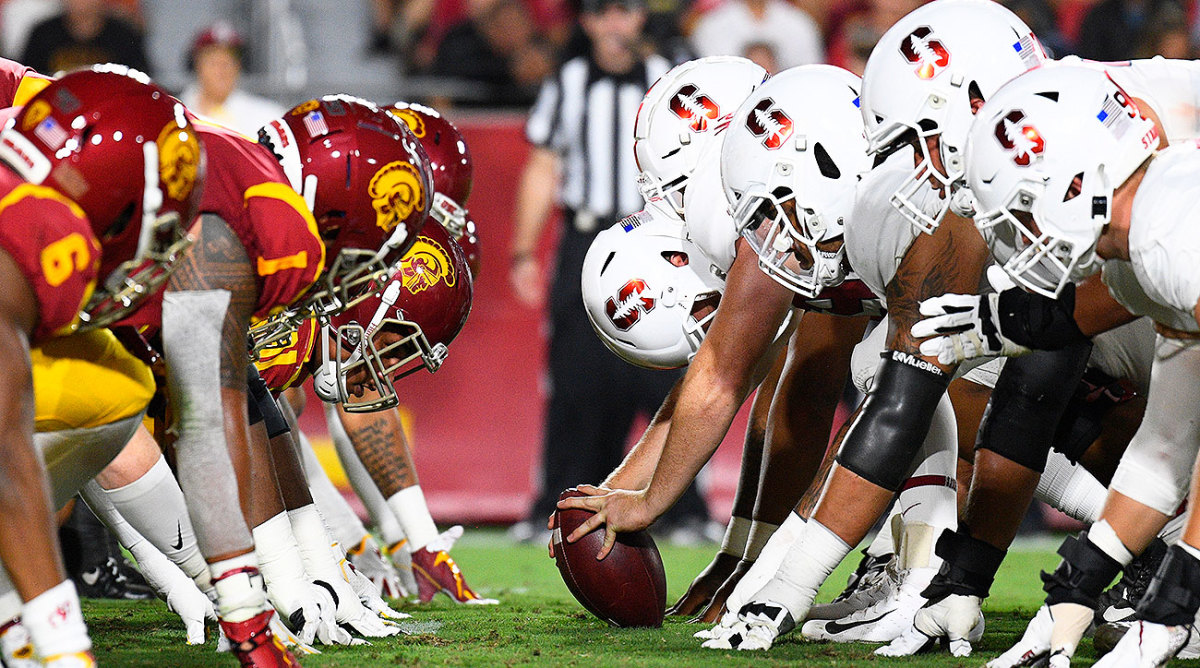I hadn’t seen a lot of discussion on this topic, but the Fair Pay to Play Act has mostly wound its way through the California legislature and is in reconciliation before it is expected to land on the governor’s desk for signing into law.
For those not familiar with the law, it effectively addresses many of the claims in the Ed O’Bannon lawsuit saying that amateur athletes are not compensated for the use of the likeness in such things as video games. The law would effectively eliminate the prohibition of college athletes in California from using their likeness, personality, etc. in a for-profit manner. The upshot is that it would allow athletes to get paid for being in video games, for pitching products on local TV, signing autographs for money, and so on.
As you can imagine, the colleges in California are opposed since they would face a choice of complying with California law or complying with NCAA membership rules. Of course, they will ultimately comply with the law. If the law passes, the NCAA has suggested that California schools could be bounced from the NCAA altogether as having an unfair competitive advantage.
Similar laws have been introduced in Colorado as well as some other Pac 12 states. The California law does not take effect for three years to allow the NCAA to figure it out and address unintended consequences.
The further upshot is this could go a lot of interesting ways: it could mean California schools just form their own league, the Pac 12 just breaks away from the NCAA, the entire nation starts adopting similar laws and boosters in Alabama start paying star recruits $100,000 to push Ford’s at the local dealership. It’s pretty fascinating how all this will play out.
Below is an SI article on it.

 www.si.com
www.si.com
For those not familiar with the law, it effectively addresses many of the claims in the Ed O’Bannon lawsuit saying that amateur athletes are not compensated for the use of the likeness in such things as video games. The law would effectively eliminate the prohibition of college athletes in California from using their likeness, personality, etc. in a for-profit manner. The upshot is that it would allow athletes to get paid for being in video games, for pitching products on local TV, signing autographs for money, and so on.
As you can imagine, the colleges in California are opposed since they would face a choice of complying with California law or complying with NCAA membership rules. Of course, they will ultimately comply with the law. If the law passes, the NCAA has suggested that California schools could be bounced from the NCAA altogether as having an unfair competitive advantage.
Similar laws have been introduced in Colorado as well as some other Pac 12 states. The California law does not take effect for three years to allow the NCAA to figure it out and address unintended consequences.
The further upshot is this could go a lot of interesting ways: it could mean California schools just form their own league, the Pac 12 just breaks away from the NCAA, the entire nation starts adopting similar laws and boosters in Alabama start paying star recruits $100,000 to push Ford’s at the local dealership. It’s pretty fascinating how all this will play out.
Below is an SI article on it.

What happens if CA's 'Fair Pay to Play Act' becomes law?
As California gets closer to adopting a law that would end NCAA amateurism as we know it, we look at the challenges it could face and the potential impact it would have.

